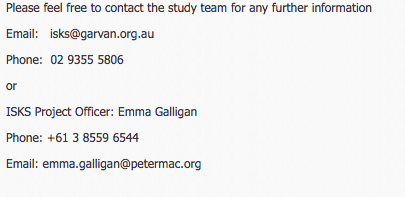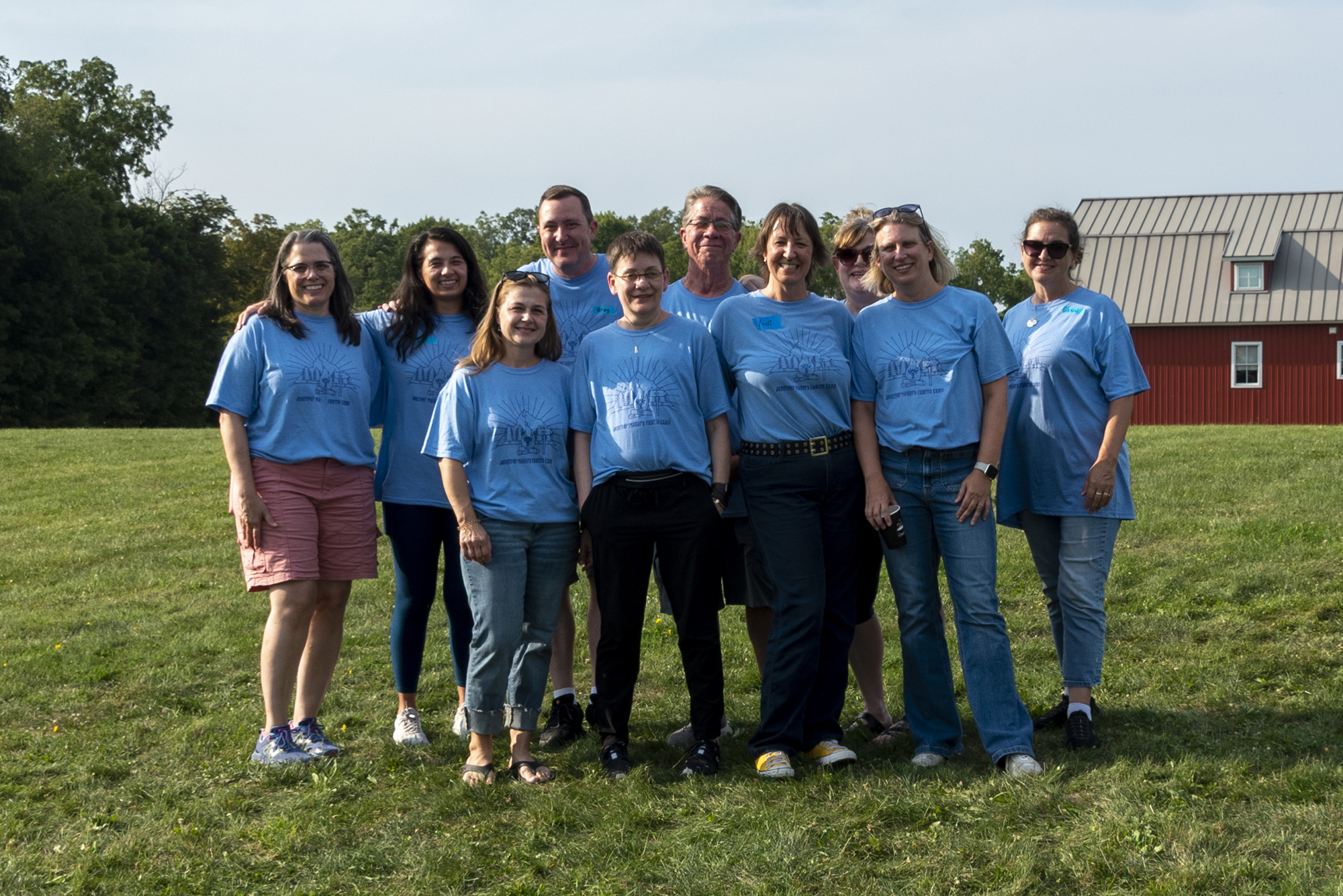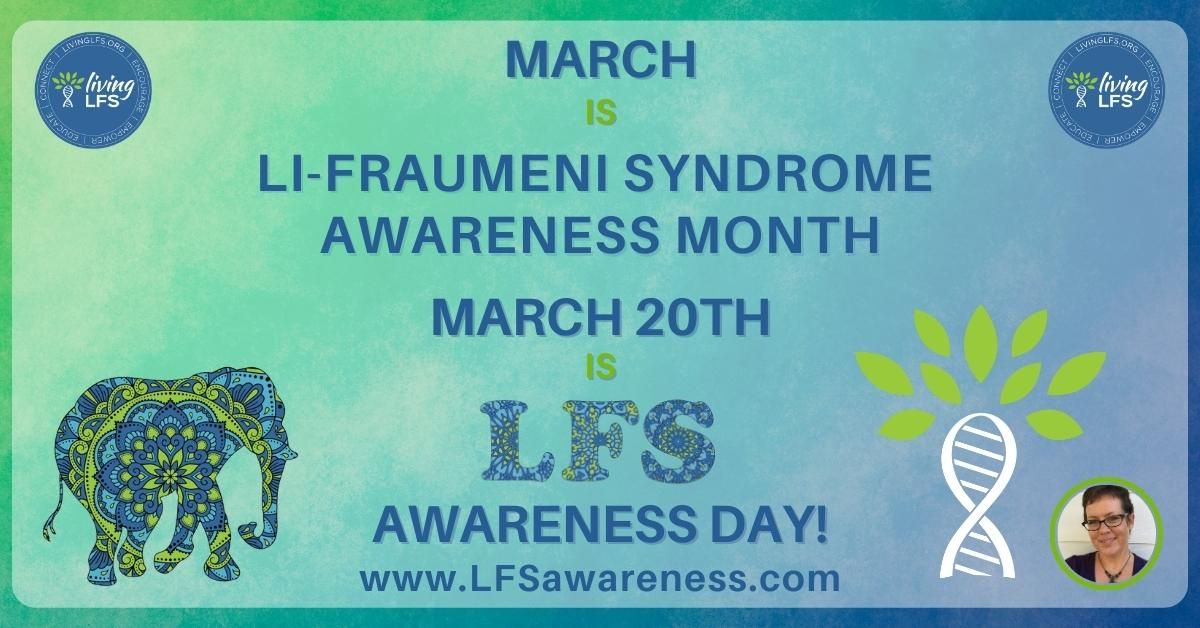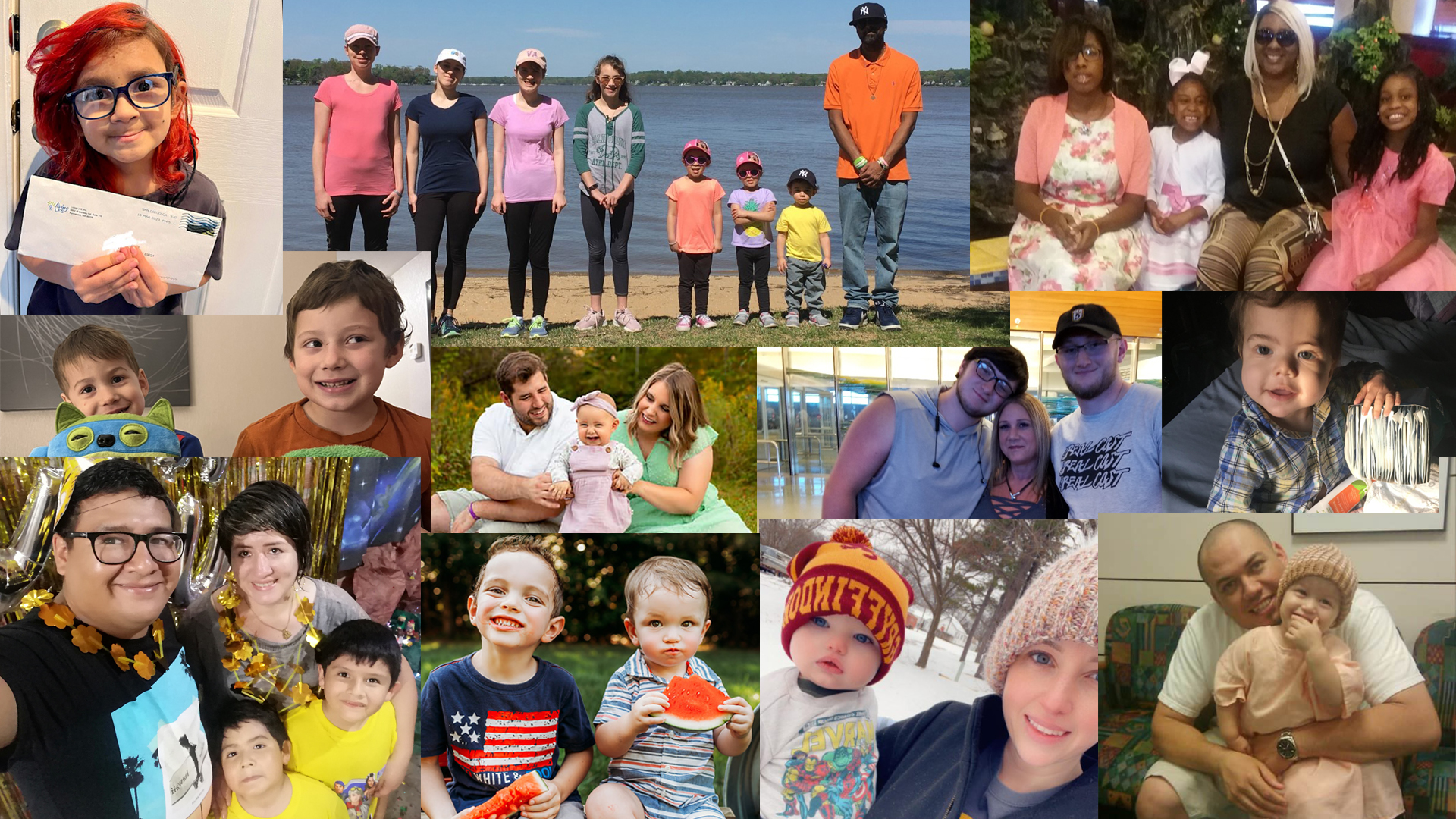In honor of July being Sarcoma Awareness Month, I'd like to tell you about an initiative that makes a difference for those with sarcoma, especially those living with Li Fraumeni Syndrome.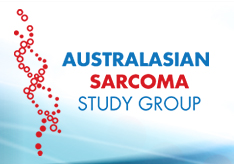
Five years ago, an Australian researcher and the family of Kate Boyson who died only 5 months after being diagnosed with sarcoma joined forces to learnmore about sarcoma. Marcus Boyson, Kate's husband formed a nonprofit in her memory called Rainbows for Kate to help fund sarcoma research and to provide those with the disease more options than his wife had access to. In 2008, with funding from Rainbows for Kate, the International Sarcoma Kindred Study began recruiting participants into the study with the hope of finding more answers to the genetic causes of sarcomas and maintain a database to store important information collected from patients with sarcoma.
Now it is a multi institution, international study. Each country funds its participation in the study through its own means. Study participants are recruited by researchers. Just as Rainbows for Kate is instrumental to the program in Australia, other foundations are making this research collaboration happen in other countries- for example the Liddy Shriver Sarcoma initiative just donated $250,000 to the ISKS in May, ensuring institutions such as the Huntsman Clinic in the US can participate.
The Liddy Shriver Sarcoma Initiative
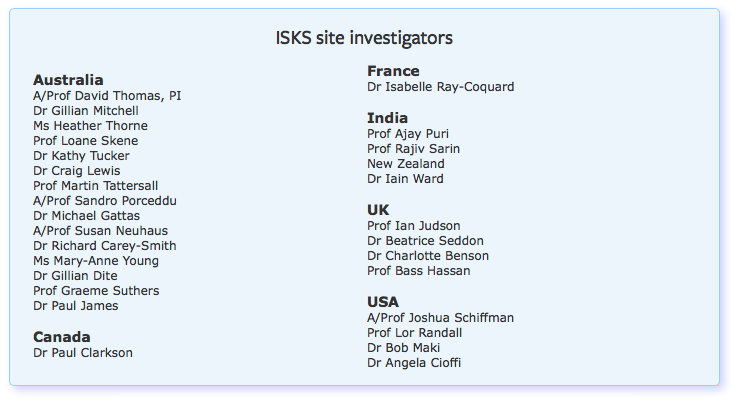 |
| From sarcomahelp.org |
According to the site, Sarcomahelp.org The ISKS is a unique biological, epidemiological and clinical resource created to investigate the heritable aspects of adult onset sarcoma. Initiated in Australia, the ISKS is now active across four continents with more than 800 families participating. The ISKS resources are available to all researchers to maximize efforts to improve outcomes for families with sarcoma.
Sarcoma is rare and there are so many different types of sarcomas. Collaborations between researchers internationally will help those with sarcoma and help find better treatments and potentially a cure for future sufferers. This study will identify new families with LFS and perhaps give them an opportunity to screen for cancers earlier. Families with LFS, who have high incidences of sarcoma will benefit from the collective database of information. This is also an example how one family can start a an initiative that make a huge impact in the future identification and treatment of a disease.
